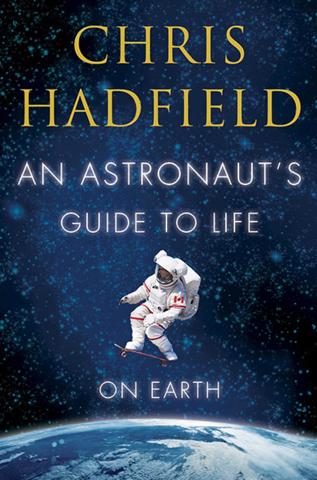
An Astronaut’s Guide to Life on Earth
Read the day after wrapping up PyCon UK.
Overall impressions: very positive. One of the key points is that being an astronaut isn’t just about the exciting stuff; it’s about years of training and preparation, and being ready for any eventuality or error.
Highlights:
Contingency sims, aka death simulators. What happens when somebody is killed in space? They go through it as an exercise – a tabletop RPG, except everybody is playing themselves, and the cards you’re turning over let the scenario unfold. Excerpt here: http://www.pbs.org/wgbh/nova/blogs/secretlife/blogposts/how-do-you-overcome-fear/
“I want to be an astronaut. What would an astronaut do?” as a guiding principle. For example, an astronaut would eat their vegetables and not complain.
There’s an anecdote where they’re debriefing after a sim, and one of the instructors says “Chris might sound confident and assured, but that doesn’t mean he knows what he’s doing.”
“Early success is a terrible teacher.” Talking about going from a hyper-competitive environment where you’re the best in the field to the bottom of the pack.
In a team: “How can I help us get where we need to go?”
Prioritise and support family/friends in real-time. It’s not enough to play catch up later. For example: he made sure to get gifts and a card arranged for Helene (his wife) for Valentine’s Day when he’d be away travelling.
There’s an anecdote where somebody asks him “Hey, do you know
? What an asshole!" and how much he'd hate to be somebody who was described like that. - Chapter 9: You can be viewed in one of three ways when entering a new environment:
- A minus one. Actively harmful, dangerous, creates problems.
- A zero. Impact is neutral, doesn’t tip the balance.
- A plus one. Somebody who actively adds value. The best way to enter is to try to be a zero; don’t rock the boat, don’t try to stir things up unnecessarily.
Chapter 10: “Velcro on the ceiling helps secure small items like […] a Sharpie – the preferred writing utensil on orbit since you can hold it any which way and it still works.”
Chapter 12: On leaving familiar places:
Despite the flurry of activity I felt a need to steal time, to find a way to be alone in this incredible place, physically and mentally. When I was 7 years old and my family moved from Sarnia to our farm in Milton, I’d had the same impulse. I distinctly remember walking around our Flamingo Drive neighbourhood for a last look, fully realising that my time in that place, which had been a big part of my life and had helped form me, was now at an end. On the ISS I did the same thing. I deliberately went to the Cupola and spent some time trying to soak up the feeling of being there, to internalize what it felt like and what the world looked like from that vantage point. I felt not sad but respectful. I wanted to acknowledge the significance of the time I’d spent on the ISS, and everything it meant to me.
Chapter 13: The aftermath of a big experience:
Some people assume that after going to space, everyday life on Earth must seem mundane, lacklustre even. But for me, the opposite has been true. Post-flight, I feel the way you might feel after a really interesting trip you’d been planning and anticipating for years: fulfilled and energised, as well as inspired to see the world a little differently.
A high-octane experience only enriches the rest of your life—unless, of course, you are only able to experience joy and feel a sense of purpose at the very top of the ladder, in which case, climbing down would be a big comedown. […]
The truth is that I find every day fulfilling, whether I’m on the planet or off it. I work hard at whatever I’m doing, whether it’s fixing a bilge pump in my boat or learning to play a new song on the guitar. And I find satisfaction in small things. […] Because of all this, plus the fact that at NASA I got so much experience climbing down the ladder, I wasn’t afraid to retire.
Endings don’t have to be emotionally wrenching if you believe you did a good job and you’re prepared to let go.
That really resonated with me after PyCon UK 2018. We did a great thing, it was wonderful, but don’t get hung up on it – don’t keep harking back to that success, and don’t pin your worth on that or the next one.
(see all reviews)